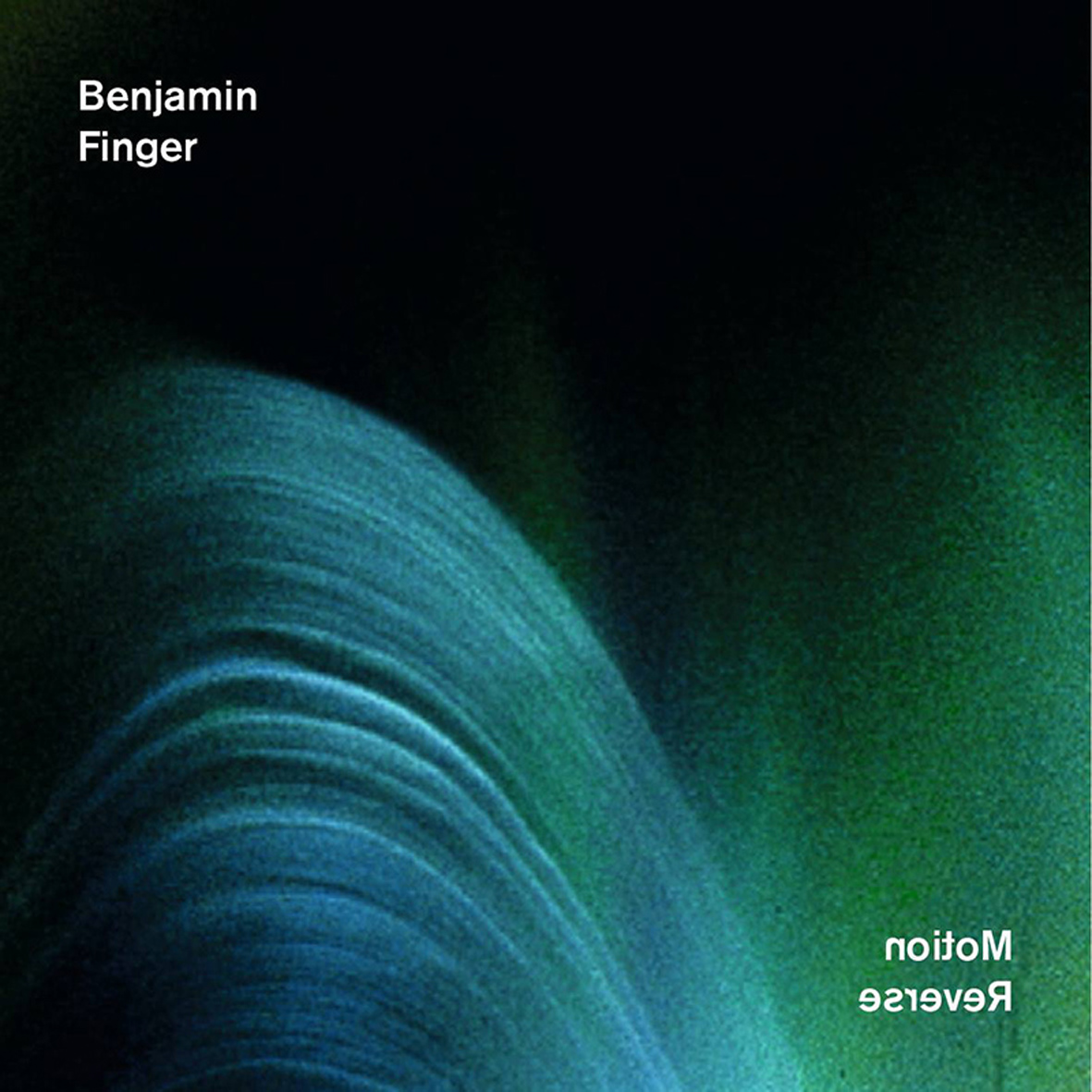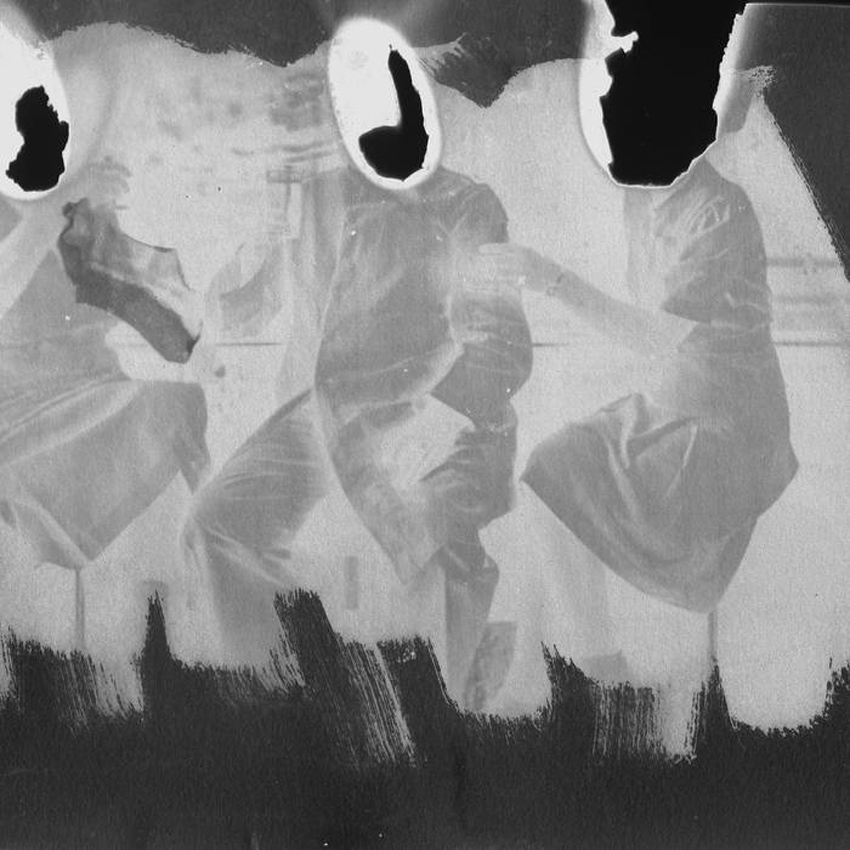 This has been an uncharacteristically prolific and creatively fertile year for Benjamin Finger, as he has released three very wonderful albums in three very different directions.  Thankfully, Finger’s characteristically warm, woozy, and hallucinatory aesthetic remains intact for all three, but he achieves that end with quite a variety of instruments and covers a lot of stylistic ground along the way.  The most notable of the three is arguably Motion Reverse, which can be viewed as a dubbier and more subdued continuation of Mood Chaser's deranged techno experiments.  Equally satisfying is Pleasurably Lost, which reprises and builds upon the dreamy psychedelia of past successes like 2009's Woods of Broccoli.  Amorosa Sensitiva, on the other hand, is a bit of a wild-card that unexpectedly dips its toes into dissonance, modern composition, free-jazz, and sundry other surprises.
This has been an uncharacteristically prolific and creatively fertile year for Benjamin Finger, as he has released three very wonderful albums in three very different directions.  Thankfully, Finger’s characteristically warm, woozy, and hallucinatory aesthetic remains intact for all three, but he achieves that end with quite a variety of instruments and covers a lot of stylistic ground along the way.  The most notable of the three is arguably Motion Reverse, which can be viewed as a dubbier and more subdued continuation of Mood Chaser's deranged techno experiments.  Equally satisfying is Pleasurably Lost, which reprises and builds upon the dreamy psychedelia of past successes like 2009's Woods of Broccoli.  Amorosa Sensitiva, on the other hand, is a bit of a wild-card that unexpectedly dips its toes into dissonance, modern composition, free-jazz, and sundry other surprises.
I am very pleasantly surprised at how well Finger has handled the transition into more beat-oriented music.  I loved 2014's Mood Chaser, but that seemed more like a wild, one-off "let’s see what I can get away with!" experiment than a sustainable new direction.  Motion Reverse proves me quite wrong though, as Finger has found a very appealing middle ground that somehow blends the best elements of Mood Chaser and his dreamier soundscape work to yield a vibrantly hallucinatory strain of warmly burbling, aquatic-sounding dub.  The pieces that best exemplify this new direction are "Frontal Waves," "Dubstore Light," and "Sunny Echoes," as Finger embellishes his delightfully wobbly and undulating pulses with an impressive host of crackling, squelching, panning and echoing studio flourishes and manipulated voices.  While those pieces and few other similar ones definitely comprise the meat of the album, there are also a few very enjoyable divergences scattered about.  I especially enjoyed the bookends: "Vocal Limited" and "Dream Logic."  "Vocal Limited" is a hypnotically skipping "locked groove" type of piece, but Finger lets himself go deliciously wild on the periphery, unleashing quite an impressive torrent of skittering and sputtering electronic chaos (albeit highly controlled chaos).  "Dream Logic," on the other hand, is a bit of a return to Finger’s past dream-drone comfort zone, but stretches out into a pleasantly swaying and pulsing slow-burner.  The languorously flanging groove of "Bright Exit" is yet another gem, but there are not any weak songs to be found at all on this amiable and understatedly fun excursion.
Samples:

Beats are nowhere to be found at all on Pleasurably Lost, Finger’s stellar return to his primary area of expertise: warm, abstract psychedelia.Like much of his recent beatless work, Lost is primarily built upon very simple and melodic piano motifs, but it is what Finger does around those motifs that makes his work so compelling and dinstinct.
The best description that I can think of is that it resembles an Erik Satie performance experienced through the filter of an especially wonderful dream: there is an elegant melodic thread that runs throughout everything, but it fades in and out of a beautifully warped and fragmented haze of disembodied voices, stuttering strings, beating hearts, burbling streams, bird songs, snatches of old records, shimmering electronics, and various bubbling swells of unrecognizable electronic weirdness.  The best song is arguably either the title piece or "Edges of Distortion" due their beautifully tender melodies, but Pleasurably Lost is best experienced as a complete album, as that is the only way to reap the full benefits of its otherworldly, immersive spell.  It is certainly a spell worth being beguiled by, as this album ranks alongside Woods of Broccoli as Finger's current zenith: he truly does everything exactly right this time around.The details are certainly great (melodies, textures, etc.), but the real brilliance of Pleasurably Lost is far more fundamental.For one, Finger is a true rarity among abstract psychedelic artists in that he is also a gifted songwriter–perhaps not in the conventional sense, given the smeared, kaleidoscopic unreality of the finished pieces, but it is easy to see that these ten pieces were songs at one point, as they all have hooks, a satisfying arc, and a knack for ending long before they overstay their welcome.Equally importantly, Finger has a unique gift for infusing his work with an endearing fragility and human warmth that is all his own.  This is an ideal place to start with Finger's sublime oeuvre.
Samples:

I do not know quite what to make of Amorosa Sensitiva, though I certainly like it.  It kind of feels like a clearing house for all of Finger's material that did not fit on any of his other albums, except that much of it is quite strong and super-producer James Plotkin was called in to master it all.  I suppose that means that it is deliberately and triumphantly kaleidoscopic by design.
In any case, Amorosa is stylistically all over the place.  The opening "Headspincrawl," for example, is 10-minutes of lazily warped, lushly gorgeous organ drone that gradually dissolves into a surreal haze of skipping vocal snippets, deconstructed techno tropes, and chopped-up classical music.  "When Face was Face," on the other hand, is a lovely and languorous cello piece dappled with twinkling synthesizer flourishes.  "Waltz in Clay" is a similarly elegant and melancholy cello work, but embellished with rippling piano arpeggios, subtle field recording textures, and gently hallucinatory studio effects.  Naturally, none of that prepared me at all for the clattering, noir-ish, and smoky saxophone eruption of "Whirlbrainpoolin." Nor was I prepared for both the free-jazz and guest saxophonist Are Watle to unexpectedly return in fractured form on the beautifully tender and masterfully warped piano interlude of "Bum Finger Notes" (to which Watle also contributes a wonderfully unconventional guitar solo).  Finally, the dreamy, shimmering ambiance of the brief closer "Darnskullgreyness" harkens back to Finger's classic earlier work, but enhances it with drifting snatches of violin and echoing, indistinct conversations.
Read More

